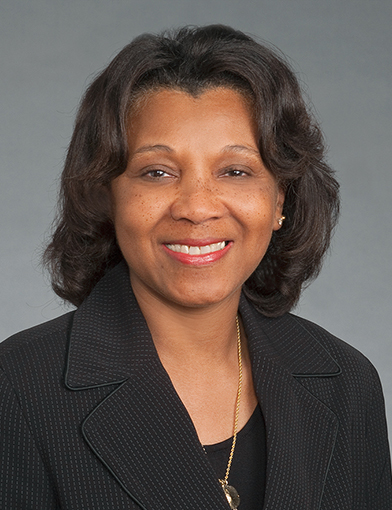
Brenda Latham-Sadler, MD
Vice Dean – JEDI
Vice Dean – JEDI
Dr. Latham-Sadler has been involved in community service throughout the state of North Carolina, where she has served on the Board of Directors of Appalachian State University Foundation, United Way of Forsyth County, Youth Opportunities, Inc., Winston-Salem Urban League, and the North Carolina Black Repertory Theater Company, among others. She is a member of the Women’s Fund of Winston-Salem, was named one of Winston-Salem’s Outstanding Women Leaders, has been honored by the National Association of Medical Minority Educators, as well as the Winston-Salem Legacy Foundation and received the Salem Lodge Community Award for Outstanding Female Leader. She served on the State Health Coordinating Council (SHCC) of North Carolina by appointment from Governor Beverly Perdue and continues to be active in a number of community service activities. She continues to also teach medical students and residents in training. Among scholarly activities, Dr. Latham-Sadler focuses on health equity, healthcare workforce, and pipeline programming.
